Tracing the obsessive profile of Joe Goldberg from the series You
ATTENTION! This analysis, like any deep analysis that unravels the psychological profile of a character as complex as Joe from the series You, contains spoilers. Therefore, if you haven't watched the fifth and final season yet, please leave this text.
Before reading, check out the trailer for Season 5:
How aesthetics are a determining factor in the series You
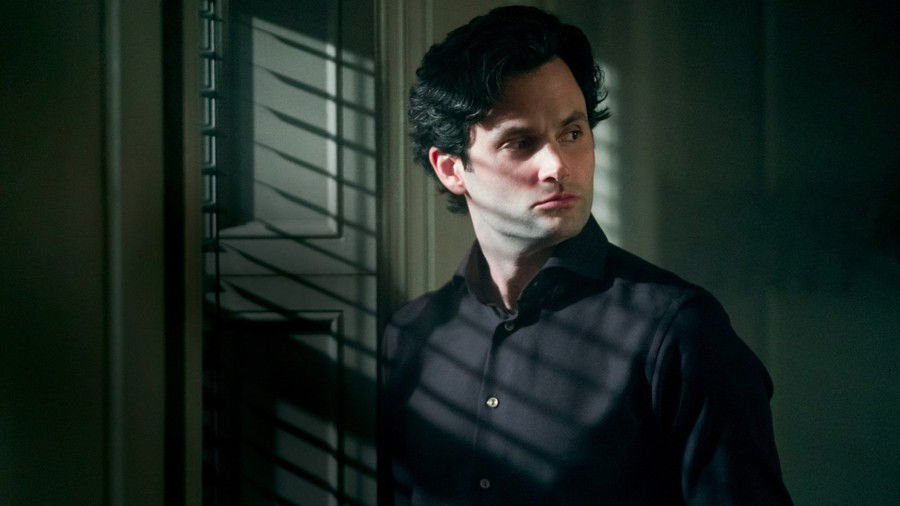
Joe is a man who, in the context of the series and due to Penn Badgley's already-associated fame, stands out for his intelligence and ability to attract several women. This doesn't happen only because of his charm or knowledge stemming from the intellectuality typical of those who revere books as "a weapon and shield for exchanging experiences," but also because of his looks. This turns out to be his main trump card for attracting and, at the same time, attacking his victims.
As much as beauty in society is something subjective, when we consider the popular appeal of Penn Badgley's history and the fact that it is a fictional work about a monster-man capable of murdering women and men and always escaping, we enter deeper discussions about the “cute killer.”
This view was intentionally explored by the book’s author. She exemplifies, even if indirectly, a kind of hybristophilia normalized in society. This means that people tend to become attached to beautiful people, even if they are serial killers, as is the case with Joe. This ends up happening throughout all the seasons of You.
Psychological aspects in the construction of Joe Goldberg's character
Joe is, in all his complexity, a product of the author's creativity, well represented by the dark atmosphere and suspense presented at key moments of the series. The story is always shown from his point of view. For this reason, the passion acquired by the fanbase for the handsome man who commits crimes but is intellectual is comparable to a shoe with non-slip soles slipping on a banana peel: inevitable and problematic at the same time. The responsibility also falls on the viewer. That's the grace of audiovisual: to generate debate.
The work was planned down to the smallest details, leading us to believe in something so vehemently that it becomes a reason for discussion among those who agree or disagree with the character's actions. Thus, the dramatization reflects consequences in the target audience.
Saying that Joe is complex is because society does not see in him a linear execution of his thoughts. There is a deviation from political correctness. We are talking about someone who commits crimes, which could be simple to understand. He is, and always has been, someone with mental problems and is psychotic. Understanding this is not complex. The difficult part is understanding the logical line that leads a human being to become what he has become. This, yes, is complex. Although the justifications “I want to be bad because I suffered” are controversial within psychology, with Joe we have a character who carries traumas from a violent childhood, reflected in the crimes he commits as an adult.
Penn Badgley, his characters, and the use of the internet and technology as a weapon
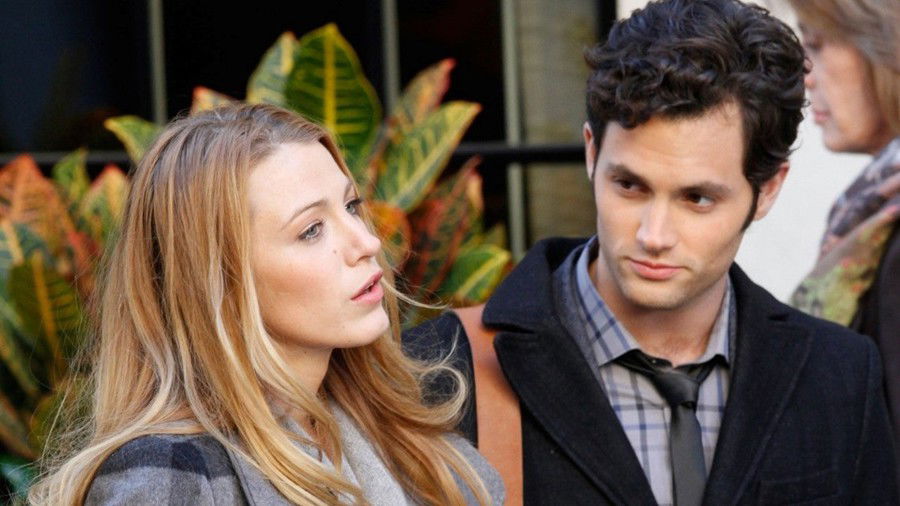
Penn Badgley, with his golden retriever way, has already won over the audience since the days of Gossip Girl (2007-2012), when he played Dan Humphrey, the outcast boy who was in love with the most popular girl and was already a sort of stalker. This, even before the term was widely known.
Perhaps Gossip Girl was one of the first series to address the power of control and manipulation that technology, along with the internet, can provide. At the time, there weren't as many resources as today, but Dan (Badgley) and other characters were already able to cause serious damage to various people's lives, always aiming for their own interests.
Already in You, the use of technology and social media is one of Joe's (Badgley) tools to find his victims. After all, every time Joe falls in love with a new woman, sooner or later she ends up becoming a victim, whether for not being faithful or for leaving him. Living with Joe is practically an ultimatum: stay by his side and love him, or die.
Guinevere Beck (Elizabeth Lail), Candace (Ambyr Childers), Love Quinn (Victoria Pedretti)—all of them, as well as other people close to them, were targets and fatal victims of Joe’s obsession. An obsession developed since the early seasons, with flashbacks of a childhood marked by violence and abandonment, especially by his mother. This might explain his obsession with women, his desire to be loved, and even the fact that he does the impossible to keep them close.
Analysis of the You Seasons: How Joe’s Obsession and Fate Developed Leading Up to the Finale
You - Season 1(2018)
It was the beginning of everything. We were introduced to the character, his target Beck (Elizabeth Lail), and everything he did to win her over. Joe was already eliminating every obstacle to have her all to himself.
The first season of You deserves to be highlighted for being a phenomenon on Netflix and in pop culture at large. Joe almost becomes synonymous with stalker, given the extent of his moves—hacking accounts, computers, and cell phones to know everything about people's lives and take advantage of that.
'You' - Season 2 (2019)
In the second season, we see a Joe running from the past. Although he found someone to take the blame for his previous crimes, he didn’t want to stay in New York, which had lost its meaning for him. Joe moves to Los Angeles yearning for a new life. He tries to leave behind his fate with women and his dark past, but soon he meets a new victim and the cycle of crimes repeats itself—this time with Love (Victoria Pedretti).
The big surprise this season is that Love turns out to be just as sadistic as him. Out of jealousy, she kills Delilah (Carmela Zumbado), the superintendent of Joe’s building, and Candace (Ambyr Childers), his ex-girlfriend. On discovering this, Joe considers eliminating Love, but she is pregnant and uses this as a trump card to survive.
'You' - Season 3 (2021)
Now, Joe and Love form a family with the arrival of Henry. Even though the boy has murderous parents, there is a difference between them: motivation. Joe kills almost instinctively and tries to fool himself with justifications of “a greater purpose.” He thinks he’s helping his beloved or the world by eliminating “unworthy people.” Love is reminiscent of first-season Joe, killing to keep the family together. This turns out to be her weakness, and Joe realizes he cannot live with someone so similar to himself—especially with a child in the middle of the chaos.
Joe eventually meets librarian Marienne Bellamy (Tati Gabrielle), but Love finds out and tries to alert Marienne about who he is. After learning of the betrayal, Love tries to end Joe, but, once again, he is quicker, faking his own death, killing his wife, and leaving Henry with a new family.
'You' - Season 4 (2023)
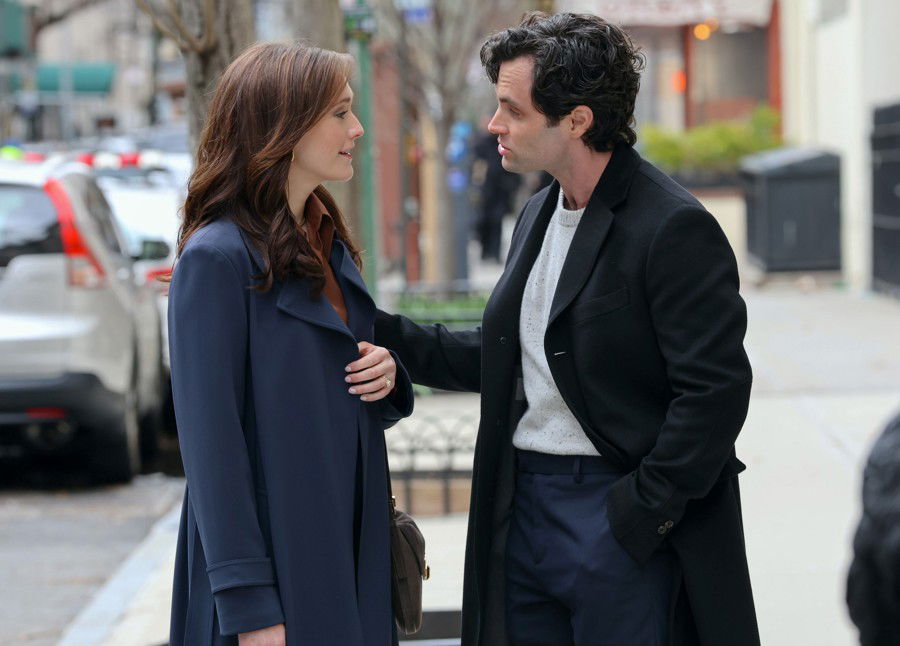
Joe adopts a new identity in London. There, he lives as university professor Jonathan Moore, teaching English language and literature. He meets Marienne Bellamy (Tati Gabrielle) again after their involvement in Los Angeles. She escapes to Paris after discovering who he was.
Free from Marienne, Joe turns his attention to Kate Lockwood (Charlotte Ritchie), his new target—a woman from a noble family with influence in the media and politics. The difference in season four is to put Joe as someone trying to figure out who is committing the crimes around him, until he discovers at the end that it was him all along. Thus, the character brings together traits of a sociopath, narcissist, psychotic, and also develops Dissociative Identity Disorder (DID).
It's as if he no longer wanted to be a serial killer, wanting to get rid of this dark side to lead a clean life. But as he tries to forget his crimes, Joe kept Marienne captive, since she knew about his past crimes.
Marienne becomes his link to the past, throwing in his face that he is a misogynist and a serial killer. Joe’s dark side resurfaces and takes control of the events. Nonetheless, Marienne manages to escape with the help of Nadia (Amy-Leigh Hickman), and as revenge, Joe makes Nadia take the blame for his crimes.
And where does Kate come in? To make the fifth and final season possible, Kate becomes an accomplice: she agrees to stay with him, even knowing his past because she also has secrets that Joe knows. This involvement—along with Love’s—shows the pattern of hybristophilia: women who, even knowing the man’s history, give themselves to him.
At the end of the season, Joe and Kate enter into a marriage of convenience, beneficial for both. Together, they become part of New York’s elite.
Fifth Season of You: Joe Goldberg’s Murderous Fantasy Persists
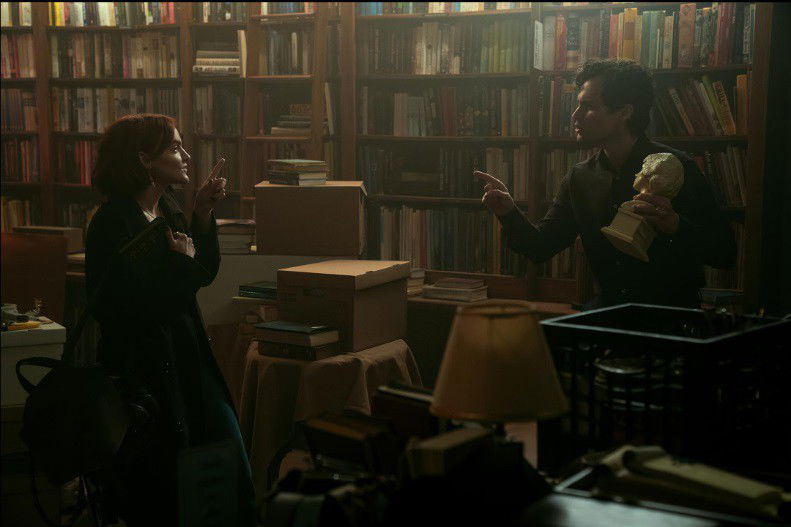
Looking at Joe’s trajectory until the last season, we realize that his obsession with killing is linked to fleeting, momentary desires. The pleasure of killing is associated with the fulfillment of sexual fantasies. Finding a “target,” he is willing to eliminate anyone who gets in the way of his immediate fantasy.
If in season four he tried to forget his violent and murderous side to live “normally,” in the fifth he no longer cares. Now he’s rich, has a wife who accepts him, and is with his son, Henry.
But a new woman appears at Mooney’s bookstore, becoming his new obsession: Bronte (Madeline Brewer), a mysterious woman, apparently a runaway living on the streets, awakening in Joe the desire to care for and protect.
Bronte’s arrival changes Joe, and Kate notices—a warning sign. Kate begins to see who Joe truly is and recognizes her situation. Joe, in turn, tries to resist his new fantasies for Bronte.
Conclusion: Imprisoned, but loved: The psychopath who melts hearts (even behind bars)
The great twist of the season is that Bronte is actually part of a trap set by people directly or indirectly victimized by Joe, seeking justice. Aware of his modus operandi, the group led by Dominique (Natasha Behnam) and Clayton (Tom Francis) uses Bronte as bait and Clayton as the aggressive ex-boyfriend, to catch Joe in the act. Even live on TikTok, Joe manages to kill Clayton.

Although he is arrested, Joe awaits trial in freedom because Kate pays bail, but during the process gives up custody of Henry, at which point Kate begins her own plan for revenge. Finally, she wakes up and realizes what she was capable of doing for someone who’s not worth it.
Besides bail, Bronte, due to her traits of hybristophilia, exonerates Joe in her testimony about Clayton. She says that Joe acted to protect her, even knowing everything had been set up to expose him. While Kate takes the blindfold off, Bronte puts it on.
After escaping, Bonnie and Clyde style, with Joe, Bronte decides to end the crime cycle. But dying would be too easy for Joe, who has already taken so many lives. In one of the final scenes, he says: “Shoot me before they arrive!” Bronte realizes that no—killing is not the ending he deserves—prison is. Thus, Joe is sentenced to face his greatest nightmare: solitude.
Finally imprisoned, Joe needs to confront his madness in loneliness. For all his flaws, there’s a critique about this “collective madness,” shared with society. The grand finale makes the meta-language clear: Joe, the cute killer, starts receiving letters from crazy fans, bringing hybristophilia to the surface.
Although this is fiction, it has already happened in real life, with Ted Bundy, James Holmes or, in Brazil, Francisco de Assis, the Maníaco do Parque. All received love letters and declarations.
The final message of the series addresses this: being a serial killer is extremely serious, but it is also serious that some women become attached to criminals because of their appearance.
That’s all for now. See you in the next review!









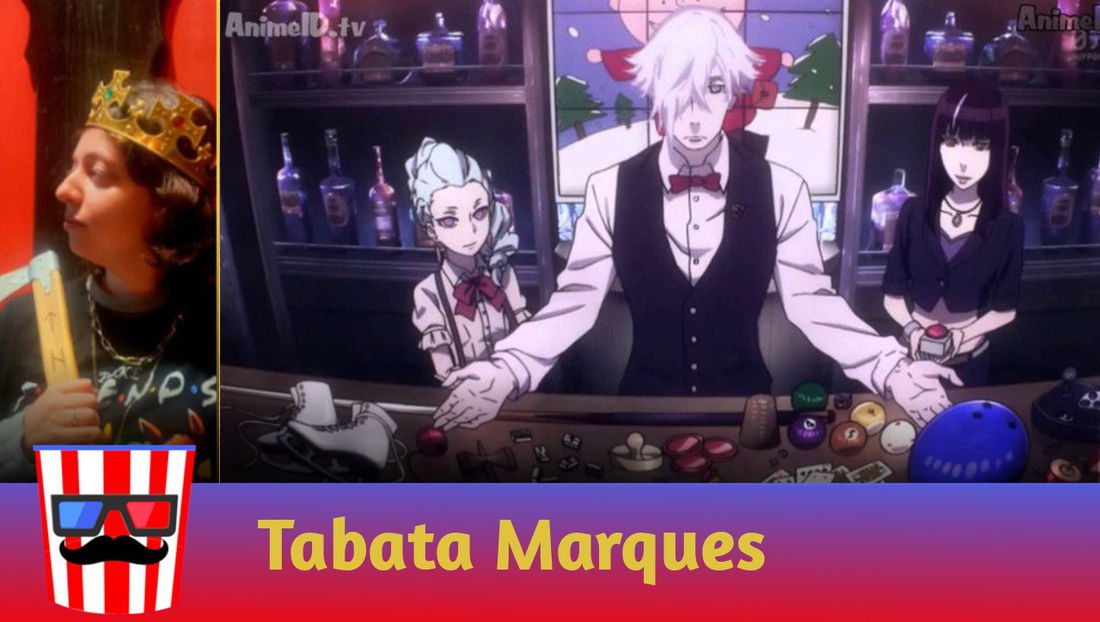



— 评论 0
, 反应 1
成为第一个发表评论的人